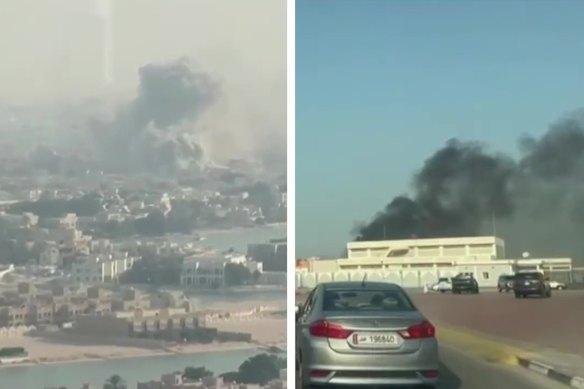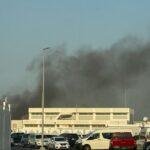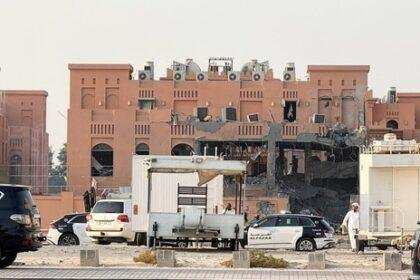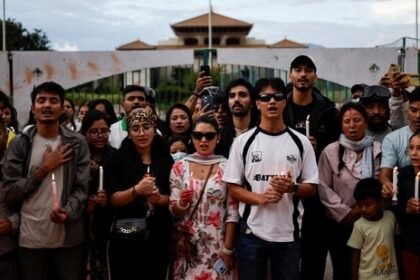Escalating Tensions: Qatar Condemns Israeli Strikes on Hamas Leadership
In a significant escalation of regional tensions, Qatar has voiced strong condemnation of recent Israeli airstrikes targeting Hamas leadership in Doha. The strikes, which occurred on Tuesday, have drawn sharp rebukes from Qatari officials, who labeled the actions as a “cowardly criminal assault” and a blatant violation of international laws.
Qatar’s Response to Israeli Actions
Qatar’s U.N. Ambassador, Alya Ahmed Saif Al-Thani, addressed the United Nations Security Council, stating that her country would “not tolerate this reckless Israeli behavior.” In her letter, she emphasized that investigations into the incident are underway at the highest levels, promising further details as they become available. Al-Thani characterized the Israeli attack as a “serious escalation,” reflecting the heightened tensions in the region.
The Israeli strikes reportedly targeted Hamas’ political leadership, specifically in residential buildings. Majed al-Ansari, a spokesman for the Qatari foreign ministry, reiterated the condemnation, asserting that the attack constituted a violation of international norms. Hamas, which has maintained a political bureau in Qatar since 2012, confirmed that while its top leaders survived the strike, five lower-ranking members were killed, including the son of Khalil al-Hayya, a prominent figure within the organization.
Historical Context of Hamas in Qatar
Hamas, a Palestinian militant group designated as a terrorist organization by several countries, has found a degree of refuge in Qatar, where it has operated openly for over a decade. This relationship has positioned Qatar as a key mediator in the Israeli-Palestinian conflict, particularly in negotiations involving hostages and ceasefires. The recent airstrikes have raised questions about the future of these negotiations, especially given the sensitive nature of the targets.
The Broader Implications of the Strikes
The Israeli Defense Forces (IDF) stated that the strikes were conducted with precision, aimed at eliminating senior Hamas leaders responsible for the October 7 attacks on Israel, which resulted in the deaths of approximately 1,250 Israelis. The IDF emphasized that measures were taken to minimize civilian harm, including the use of precise munitions and extensive intelligence.
The strikes occurred against the backdrop of ongoing negotiations for the release of hostages taken by Hamas during the October 7 attacks. U.S. President Donald Trump, who has been involved in mediating these discussions, indicated that Israel had accepted terms for a potential resolution, urging Hamas to comply as well. Trump’s warning to Hamas about the consequences of non-compliance adds another layer of complexity to the already fraught situation.
Reactions from Various Stakeholders
The Zionist Organization of America expressed full support for the Israeli strikes, framing them as a necessary action against terrorism. Morton Klein, the organization’s president, stated that the world should applaud Israel’s actions as a means of protecting not only Jews but also Christians and Western interests.
Conversely, the family of Israeli hostages expressed confusion and concern regarding the implications of the strikes on ongoing negotiations. Ilay David, brother of a hostage held by Hamas, articulated the uncertainty felt by many, questioning who Israel would negotiate with following the targeted attacks on key figures involved in the discussions.
Qatar’s Strategic Role in the Middle East
Qatar’s position as a mediator in the Israeli-Palestinian conflict is underscored by its strategic alliances, particularly with the United States. The Al-Udeid Air Base, located in Qatar, serves as a critical hub for U.S. military operations in the region. This relationship has been tested in recent months, particularly during the Iran-Israel conflict, which saw American forces engaged in operations against Iranian nuclear sites.
As the situation continues to evolve, Qatar’s role as a mediator may be further complicated by the recent Israeli strikes. The delicate balance of power in the region, coupled with the ongoing humanitarian crisis in Gaza, underscores the urgent need for diplomatic solutions.
Conclusion
The recent Israeli airstrikes on Hamas leadership in Qatar mark a significant escalation in the ongoing conflict, raising questions about the future of negotiations and the broader implications for regional stability. As Qatar condemns the actions and calls for accountability, the international community watches closely, aware that the delicate balance of power in the Middle East hangs in the balance. The path forward remains uncertain, with the potential for further violence looming as both sides navigate the complex landscape of diplomacy and conflict.










